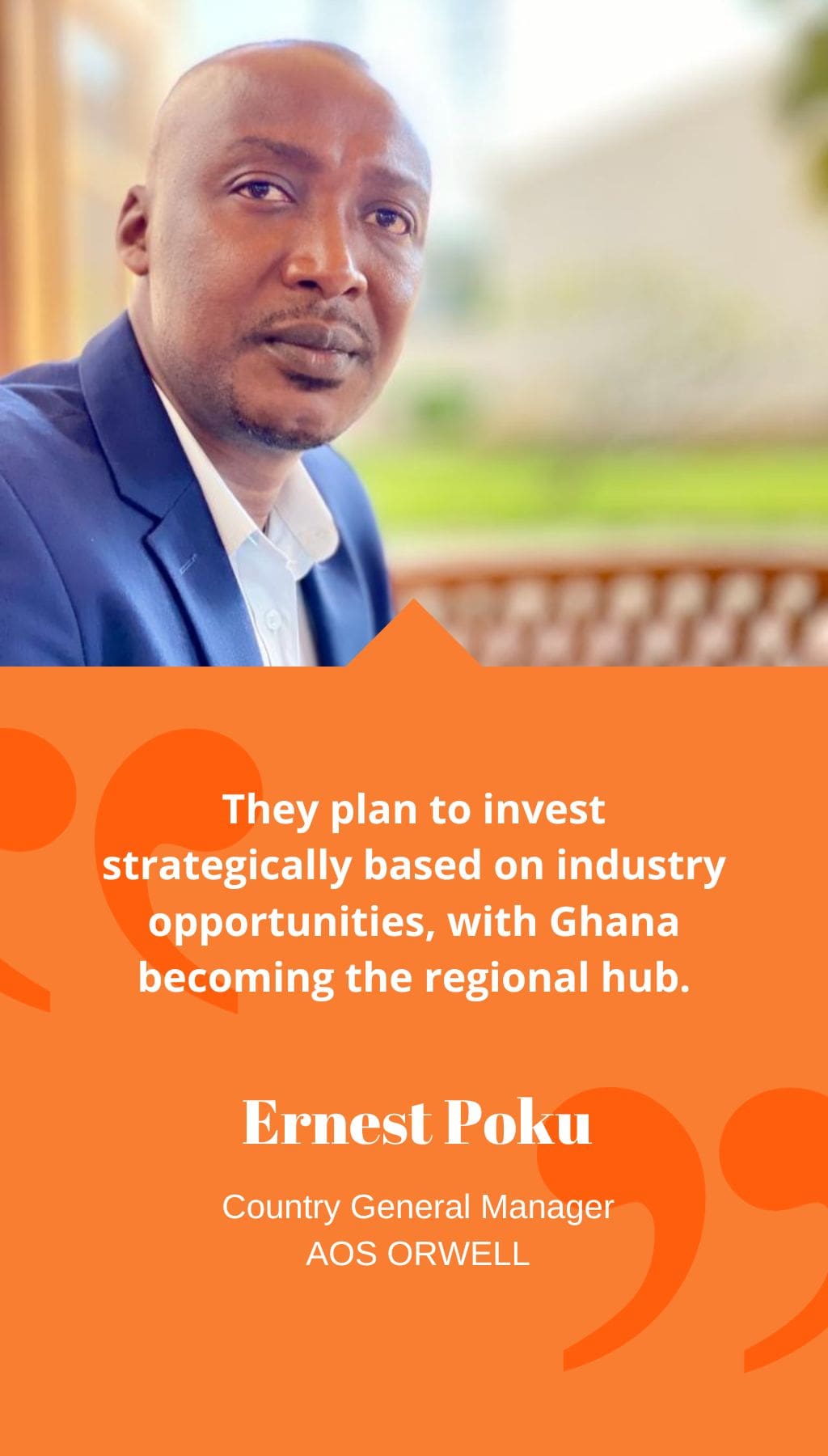
- Ghana | 8 October 2015

How has the merger between African Oilfield Services and Orwell International aided development in West Africa?
The merger brought together two sets of skills, combining the highly experienced indigenous Nigerian staff of Orwell with African Oilfields Services’ exposure to Europe through its staff and investor base. This enabled the company to move more internationally and expand their services in Ghana, where they have been bringing local staff up to speed. The acquisition of Emerson has also allowed the company to expand beyond just an upstream company. A strong focus on local content has differentiated the company in Nigeria, with more than 90% of their staff in Ghana being Ghanaian. Through their size, the company has been able to enjoy relationships with major service providers, bringing more services to the industry.
What are the core capabilities of AOS Orwell in Accra?
AOS Orwell has brought desperately required services from Nigeria into Ghana, allowing companies to do as much as possible without having to get things in from outside. They started with a machine shop for oilfield equipment repairs and manufacture of small pieces. The company also holds a license to manufacture Vam, a type of oilfield casing commonly used in-country by people like Tullow, and is the only company west of Nigeria with this ability. Building from there, they have set up a remedial drilling service, expanding their machine shop, and offering a pressure testing facility.
What is the specific nature of the $5 million investment that AOS Orwell plans to make in the company?
The majority of their cap-ex was used to purchase machine shop, fishing, and rental equipment overseas. Their op-ex consists of training, staff, the scope to manufacture and import, and potentially the acquisition of more assets in the country. As they expand their service line, the need to bring in additional equipment will drive their investment. They plan to invest strategically based on industry opportunities, with Ghana becoming the regional hub.
How much of a cost advantage will manufacturing in the country bring to AOS Orwell?
The key cost advantage of in-country manufacturing is not actually for AOS Orwell, but for the operator. In case something happens on a million-dollar-a-day rig, the operator could be looking at four days to bring replacements from Aberdeen, even in airfreight. With in-country manufacturing, it will take a maximum of 48 hours, saving up to a million dollars. The company also believes in increasing the amount of indigenous manufacturing in the country and making investments in technology and time.
What pressure is placed on service companies to keep up with the pace of the Jubilee oilfields?
The Jubilee oilfields require service companies to tear up their own rulebook and invest more and faster than they would normally. It can be challenging to convince investors because they do not view Ghana as the special place it is, but Tullow’s discovery of the Jubilee oilfields without a rulebook has set a precedent.
What are AOS Orwell’s strategic goals for the next year?
AOS Orwell aims to bring all the major services that are run in Nigeria into Ghana based on market need, starting as a third-tier supplier and supplying a lot of services into the main service companies. With training, they aim to become an indigenous company operating at the same level as in Nigeria over the next 18 to 24 months. They want to be spread amongst all the operators instead of aiming for one five-year $20 million contract with a single company.
Will AOS Orwell continue making acquisitions?
In Nigeria, AOS Orwell aims to acquire every six months, with the companies they buy often having a footprint overseas. Their ambition is to become an indigenous pan-African operator.














